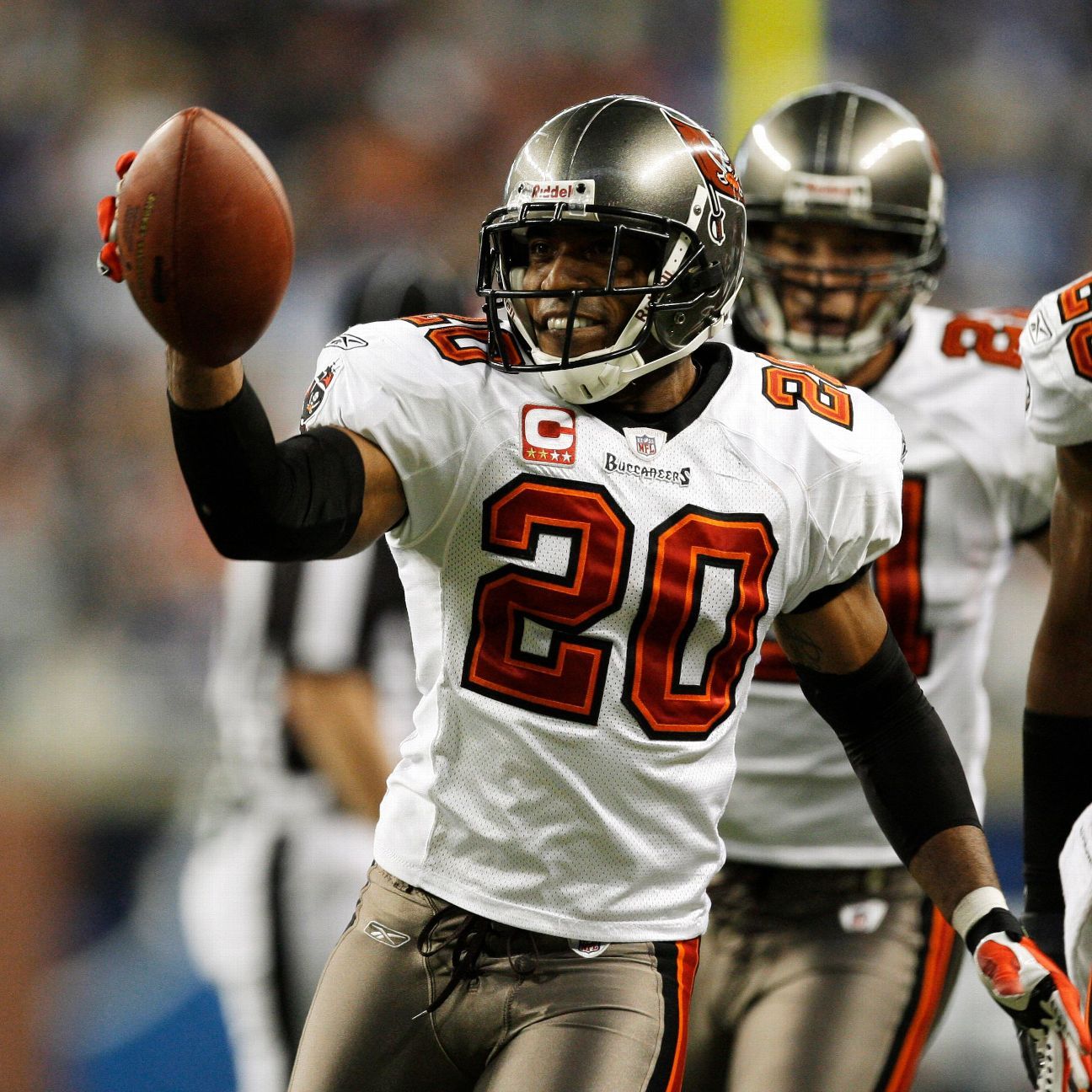Rich Cimini
Jake Trotter
CANTON, Ohio — DeMarcus Ware’s football journey from small-college star to Pro Football Hall of Famer took a fateful turn in the early 2000s, when he made a life-altering decision with a knife in his hand.
Choking with emotion as he recalled the incident Saturday in his induction speech at Tom Benson Stadium, the former Dallas Cowboys and Denver Broncos star said he was assaulted by a gun-wielding man in a parking lot during a trip home while attending Troy University. That moment, which he’d never shared publicly, changed his life.
“Without warning, I was knocked across the head with a gun,” Ware told the crowd. “A knife dropped to the ground and I picked it up. And when I looked up, all I could see was the potential shooter’s eyes and a gun barrel pressed against my head. All I heard was my family say, ‘Don’t kill him.’
“There was an eerie silence after which I simply said, ‘This isn’t me,’ and I dropped the knife. At that moment I knew God gave me a second chance and I had to do something with it. That was my turning point. The memories of those parking-lot lights and the sounds of those screams, ‘Don’t kill him,’ became the fire that empowered me. You can imagine how many years that night echoed in my head.”
Ware joined offensive tackle Joe Thomas, linebacker Zach Thomas and cornerbacks Darrelle Revis and Ronde Barber in the 2023 Pro Football Hall of Fame class, along with coach Don Coryell, defensive lineman Joe Klecko, linebacker Chuck Howley and cornerback Ken Riley. Ware led the NFL in sacks two different seasons with the Cowboys. He won a Super Bowl in 2016 with the Broncos. He said he learned how to be “relentless” and “resilient” from his tough childhood.
Editor’s Picks
“I was blinded by my environment as a child — domestic violence, drugs, gangs — but my surroundings taught me how to be relentless, limitless and resilient,” Ware said.
Joe Thomas, who gave the final speech, received the loudest ovation from the hometown crowd. Thomas played in 10,363 straight offensive snaps for the Cleveland Browns, believed to be an NFL record.
“That number is special to me in a lot of ways. … It showed I was there for my brothers, 10,363 times in a row,” he said.
Thomas made 10 Pro Bowls, but never appeared in a playoff game. He joked that he blocked for more starting quarterbacks, 20, than any other lineman in NFL history.
“What an honor,” he said, drawing laughter from the fans. It was also a big day for the New York Jets, as two of their defensive greats — Revis and Klecko — were enshrined. The crowd broke into chants of, “J-E-T-S! Jets, Jets, Jets!” during the ceremony.
Revis, elected in his first year of eligibility, gave props to his hometown, Aliquippa, Pennsylvania, only 70 miles from Canton. With members of the current Aliquippa team in attendance, he paid homage to Aliquippa legends Mike Ditka, Tony Dorsett and Ty Law, all of whom are members of the Hall of Fame.
A four-time All-Pro, Revis said he was inspired by fellow cornerback Deion Sanders, another Hall of Famer.
“What [Michael] Jordan is to Kobe [Bryant] is what Prime [Deion Sanders] is to Revis Island,” Revis said.
Revis thanked the Jets’ fans, though he noted how some burned his jersey when he signed with the New England Patriots in 2014 — a season that ended with a Super Bowl championship.
Klecko, who waited 30 years for induction, entertained the crowd with a funny and touching speech, saying his wife, Debbie, is responsible for his career.
Unrecruited out of high school in Chester, Pennsylvania, Klecko signed up to play semi-pro football, but he got cold feet when he arrived at the first practice. Debbie, his girlfriend at the time, took the car keys and tossed them out the window, forcing Joe to get out of the car to retrieve them. When he did, the coach spotted the hulking youngster and called him over.
Klecko impressed so much on the field that soon he had a scholarship to Temple University. He wound up a sixth-round pick of the Jets in 1977, starting a legendary career that saw him make the Pro Bowl at three different positions on the defensive line.
“If it wasn’t for Debbie making me get out of my car, I wouldn’t be sitting here today wearing this gold jacket,” Klecko said.
Zach Thomas, just a fifth-round pick of the Miami Dolphins in 1996, led the NFL in tackles twice. He made seven Pro Bowls and finished with 1,107 tackles, the fifth-most in NFL history. He described his enshrinement as a full-circle moment, noting that it was on the day 27 years ago that he was named starting linebacker for the Dolphins.
“A dream come true for this small-town country boy,” said Thomas, adding that his football inspiration was fellow Hall of Fame linebacker Junior Seau, who died in 2012. A poster of Seau adorned his dorm-room wall at Texas Tech. Tearing up, Thomas said, “He was everything I wanted to be as a football player.”
Barber revolutionized the nickelback position. He was a disruptive force covering the pass, stopping the run and rushing the passer, finishing with 47 career interceptions, 88 tackles for loss and 28 sacks. His 92-yard pick-six in the 2002 NFC Championship Game sealed the win over the Philadelphia Eagles and propelled the Tampa Bay Buccaneers to Super Bowl XXXVII. Barber’s twin, Tiki, still the New York Giants’ all-time leading rusher, presented Ronde.
“Without him, I wouldn’t have had that daily reminder to chase greatness,” Ronde said “I am here because of my brother. … You simply cannot tell my story without telling our story.”
Coryell, who died in 2010 at age 85, orchestrated the San Diego Chargers’ high-flying offenses led by quarterback Dan Fouts and tight end Kellen Winslow during the early 1980s; the Chargers led the league in passing in seven of Coryell’s eight seasons coaching San Diego. Howley starred for Dallas in the 1960s and remains the only player to earn a Super Bowl MVP while playing for a losing team. He intercepted Johnny Unitas and Earl Morrall in a 16-13 loss to the Baltimore Colts in Super Bowl V.
Riley never made a Pro Bowl yet intercepted 65 passes in his 15-year career with the Cincinnati Bengals (1969-1983). He died in 2020 at age 72. Ken Riley II said his father “would be smiling” from above.
“It’s been a long time coming, dad,” Riley II said, “but you made it.”


